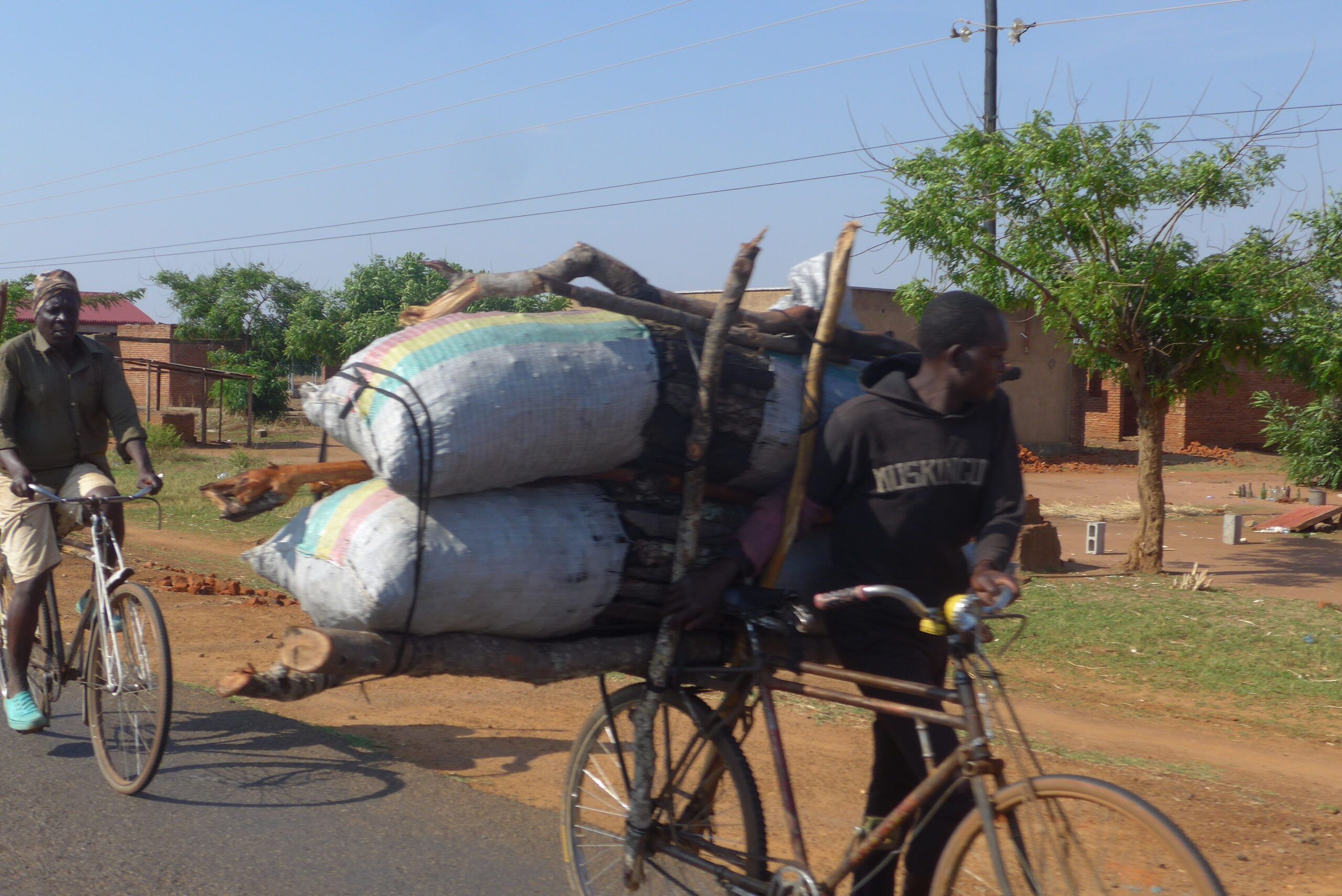I recently visited Malawi, specifically LUANAR, the Lilongwe University of Agriculture and Natural Resources. LUANAR has three campuses: two in the capital city Lilongwe and one about forty kilometers south, the “Bunda” campus. It was at this beautiful and modern campus, home to the faculties of agriculture and veterinary studies, that I spent my mornings during my stay in Malawi.
The campus is situated along the main road connecting Malawi to Mozambique. Even during an earlier visit in spring, I noticed countless bicycles heavily laden with charcoal traveling from the south to the capital, while just as many returned empty. This time, I saw hundreds upon hundreds of these bicycles. Intrigued, I asked Felix, my loyal LUANAR driver, about this constant flow of cyclists and charcoal.
Felix explained that the charcoal industry in Malawi (and in sub-Saharan Africa more broadly) plays a substantial role in providing domestic energy for growing urban populations. Malawi’s forests have almost disappeared, with the few remaining ones being small and protected. However, in Mozambique, there are still abundant forests, and the enforcement of logging bans is limited. The environmental concerns related to deforestation have led to repressive policies targeting not just illegal loggers but, more significantly, those transporting wood and charcoal.
The transporters I observed along the Bunda campus road purchase charcoal across the border in Mozambique and bring it to Zomba, a mid-sized city on the outskirts of Lilongwe. The journey is long (around 100 kilometers), and at best, they make two trips per week using old, heavy bicycles overloaded with charcoal, their sweaty, exhausted faces peeking out from behind their loads. While there’s always a risk of their cargo being confiscated, Felix says the police often turn a blind eye in exchange for a small bribe—corruption here is widespread. Yet, transporters have little to offer. Despite the enormous volumes carried, charcoal is light, and market earnings barely cover the transporters’ basic needs. They must also hope their bicycles don’t break down.
Interestingly, a recent survey found that transporters are drawn to this work because of the quick cash flow, seeing it as a solution to the chronic lack of other job opportunities. Both men and women participate in this trade, but transport methods are gendered. Men, who transport charcoal by bicycle, earn three times more per week than those who carry it on their heads, the primary method used by women.
Before leaving Malawi, I discovered that charcoal is sold virtually everywhere, and sometimes trucks or vans are used instead of bicycles. There is a new program, Modern Cooking for Healthy Forests (MCHF), which aims to strengthen the legal and regulatory framework of the forestry sector and more effectively combat illegal logging. However, without alternative jobs or opportunities, the program is unlikely to resolve the issue of illegal charcoal production and trade. This year, Felix told me, the government seized a vehicle used for illegal charcoal transport for the first time. However, this was not a sufficient or effective deterrent.
Prof. Riccardo Fortina



